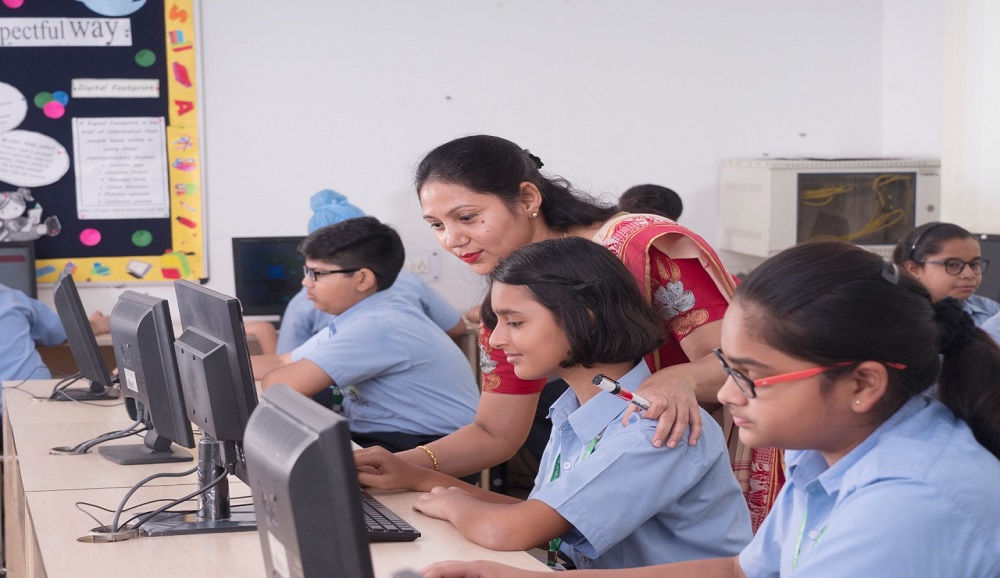Rational thinking often used synonymously with critical thinking, is currently listed as a required skill in most esteemed university admission and job listings. Educators around the world unanimously agree that students need to have the skill to think rationally to find success in the 21st-century. Yet, even when the result is desired from almost all students, a few pedagogies include the process of teaching rational thinking. Psychologists say that teaching students to think rationally is possible. And just building proficiency in mathematics is not going to make the cut. Schools need better methods and effective strategies to both teach and sharpen the skill.
Students need to engage in more constructive arguments
The top 10 schools in Sonipat motivate students to take part in debates. Beyond this, teachers teach through vibrant discussions among peers and ask students to shed light on the opinion of another. As opposed to disagreement, an argument is a conversation where two or more parties sit down to discuss their competing views. Each side arrives with an open mind and merely presents opposing points of view rather than outright dismissal. When a student argues, he/she has to accept the perspective of the other side, ponder upon its validity, and then present his/her own argument that may or may not counterbalance the point on the table.
Having more arguments sharpens rational thinking. Having them with more people brings in more perspectives. The varied knowledge and exposure gained in the process help students to create a foundation for rational thinking as they become a reserve on which the students can bank during future conflicts.
Student psychology plays a key role
Modern psychology states that human brains are not logical thinking machines. In fact, thought is something that happens to us rather than we consciously engaging in the same. If thinking is really out of our control, we need to tap into our psychological self to get a better grip on something that is natural. To teach rational thinking, schools and teachers need to target students’ cognitive biases. Then, by explaining how a particular bias might have influenced a student’s thought process, it is possible to rewire the mind to think rationally.
And this is why the top CBSE School in Sonipat has a dedicated psychology department. Most soft skill development is rooted in student psychology and the help of an expert is paramount. Cognitive biases are easy to develop and difficult to break but the process is required to teach rational thinking.
Forming a premise for rational thinking
Productive arguments and unbiased opinions have to stem from somewhere. And that source is ultimately pure logic. By evolution, logic is natural to us, hidden somewhere amidst the biases. The more we feed it with analytical approaches, the better shape it takes in our thought centers. To question the status quo, students need logic. To form solid counterarguments, students need to call upon logic. The best way to sharpen logic in students’ minds is to include more mathematics and statistics in the curriculum.
And that does not mean that schools should increase the time dedicated to the two subjects. On the contrary, it means involving students in more activities that include mathematical and statistical thinking. Rational thinking uses the same pathways as mathematics and statistics and thus even basic knowledge can help to build the skill.
Personalized feedback remains the key
Similar to teaching any other subject or skill, personalized feedback is essential in developing rational thinking among students. However, the personalized feedback cannot come after the thought has passed the student’s mind. It has to be invasive. The teacher must interject as soon as the student presents an opinion. And a proper explanation must be there stating why a particular thought chain was rational or not. The human mind is a master of jumping from one thought to another and if the moment for feedback passes, the motive will be lost.
So, educators must freeze the moment and provide feedback. They must show where the inference took a wrong turn and why it happened. With regular feedback, the mind will learn the right path to take while thinking about something important and rationality will gradually become a habit.
Swarnprastha Public School, a top name in the list of boarding schools in India, has been effectively teaching its students rational thinking for many years now. SPS’s dedicated counseling wing provides expert advice to teachers and through technological involvements like robotics and coding, students get to sharpen the foundation of logic. Swarnprastha is one of those few schools that does not just seek the result but actively teaches the process. It recognised that rational or critical thinking is vital for education and quickly built a comprehensive infrastructure around the idea.








